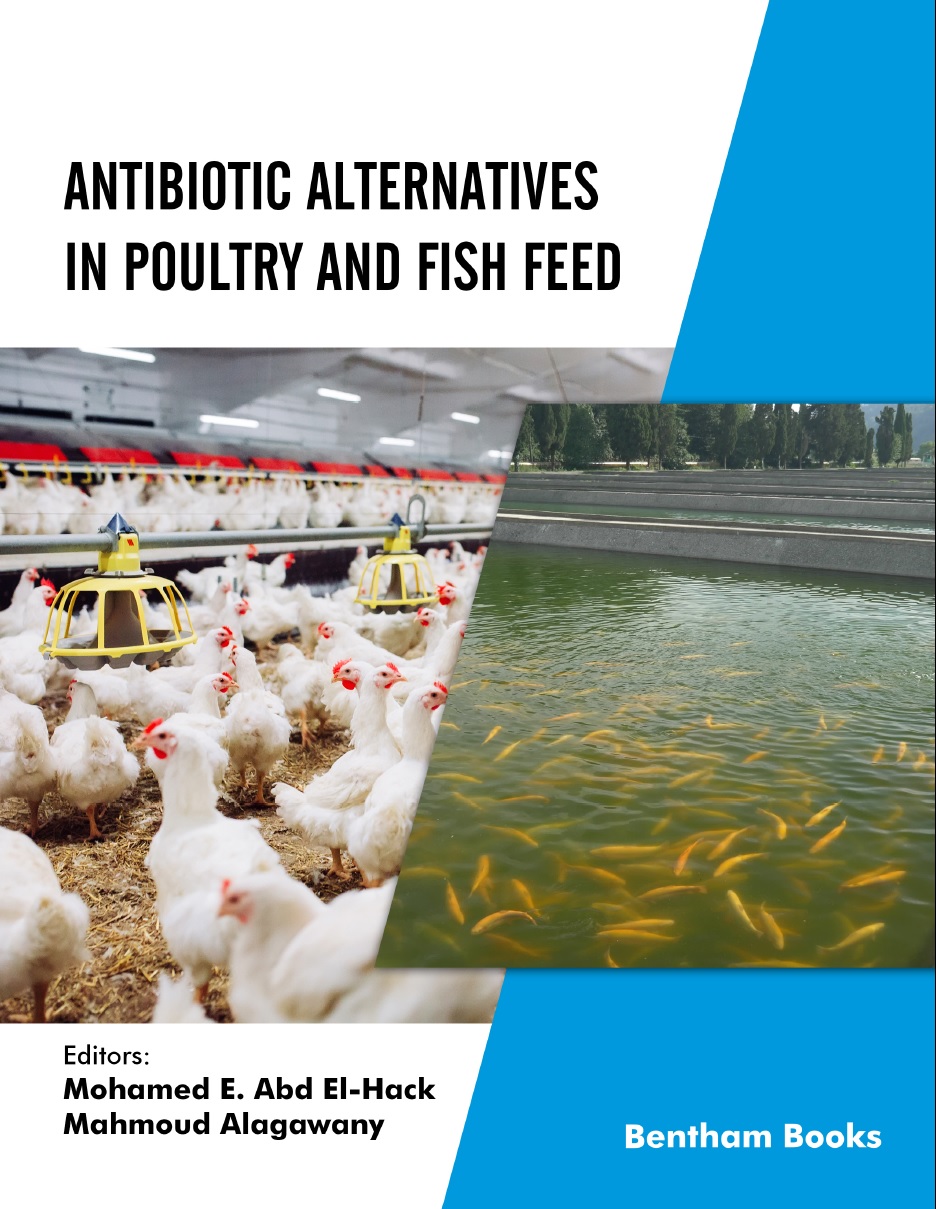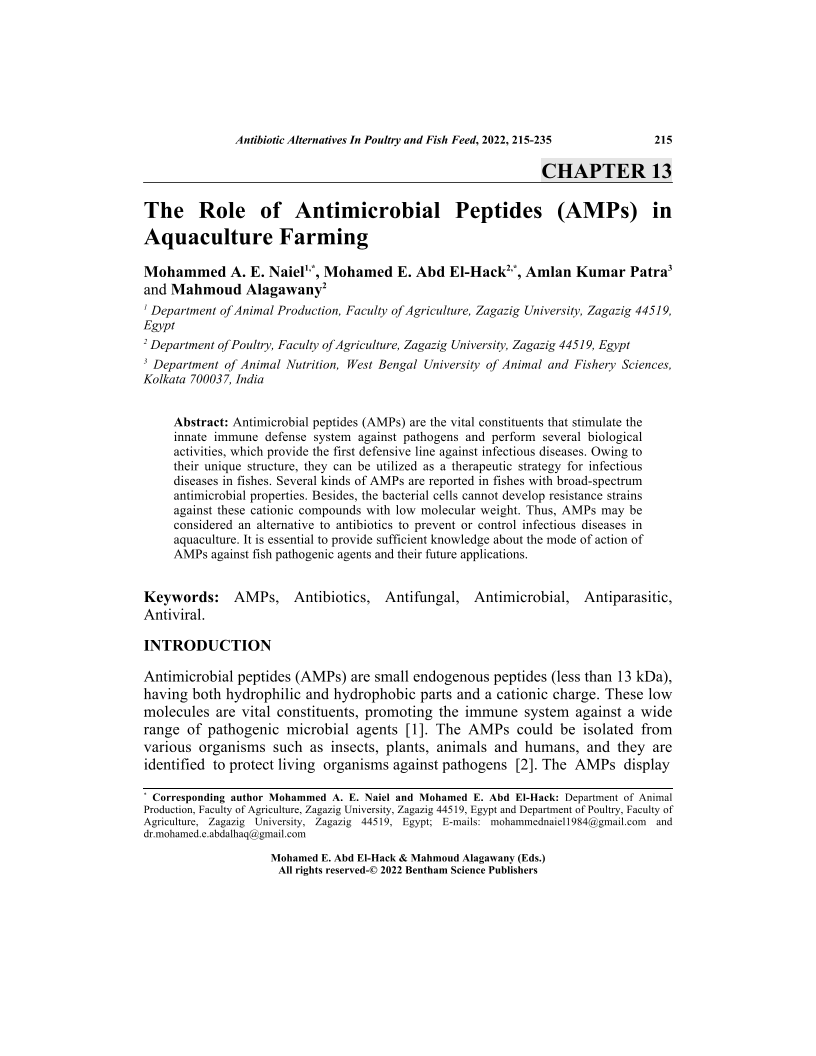The Role of Antimicrobial Peptides (AMPs) in Aquaculture Farming

- Authors: Mohammed A. E. Naiel1, Mohamed E. Abd El Hack2, Amlan Kumar Patra3
-
View Affiliations Hide Affiliations1 Department of Animal Production, Faculty of Agriculture, Zagazig University, Zagazig 44519,Egypt 2 Department of Poultry, Faculty of Agriculture, Zagazig University, Zagazig 44519, Egypt 3 Department of Animal Nutrition, West Bengal University of Animal and Fishery Sciences,Kolkata 700037, India
- Source: Antibiotic Alternatives in Poultry and Fish Feed , pp 215-234
- Publication Date: October 2022
- Language: English
The Role of Antimicrobial Peptides (AMPs) in Aquaculture Farming, Page 1 of 1
< Previous page | Next page > /docserver/preview/fulltext/9789815049015/chap13-1.gif
nbsp;Antimicrobial peptides (AMPs) are the vital constituents that stimulate the innate immune defense system against pathogens and perform several biological activities, which provide the first defensive line against infectious diseases. Owing to their unique structure, they can be utilized as a therapeutic strategy for infectious diseases in fishes. Several kinds of AMPs are reported in fishes with broad-spectrum antimicrobial properties. Besides, the bacterial cells cannot develop resistance strains against these cationic compounds with low molecular weight. Thus, AMPs may be considered an alternative to antibiotics to prevent or control infectious diseases in aquaculture. It is essential to provide sufficient knowledge about the mode of action of AMPs against fish pathogenic agents and their future applications. nbsp;
-
From This Site
/content/books/9789815049015.chap13dcterms_subject,pub_keyword-contentType:Journal -contentType:Figure -contentType:Table -contentType:SupplementaryData105

